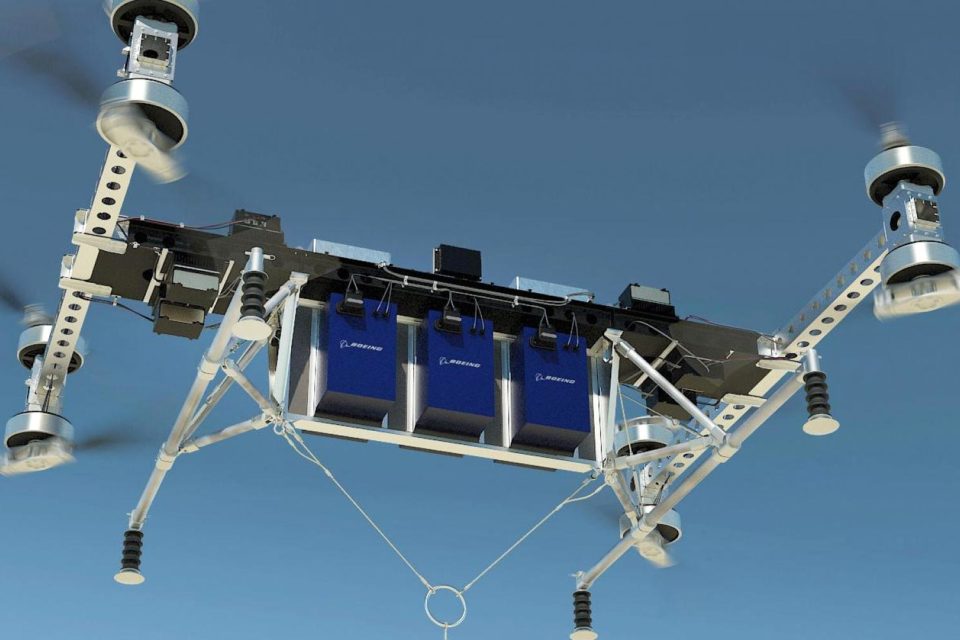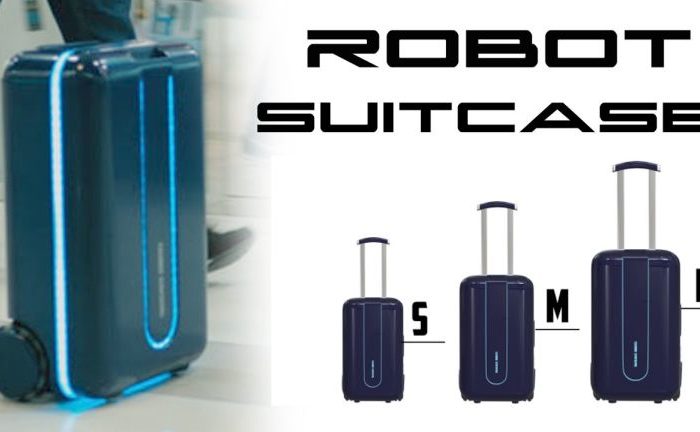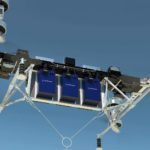Boeing unveils new unmanned cargo air vehicle prototype

The world’s largest aerospace company Boeing today unveiled a new unmanned electric vertical-takeoff-and-landing (eVTOL) cargo air vehicle (CAV) prototype. The unmanned electric vertical-takeoff-and-landing cargo air vehicle (CAV) would be used to test and evolve Boeing’s autonomy technology for future aerospace vehicles. The CAV is powered by an environmentally-friendly electric propulsion system and it’s designed to transport a payload up to 500 pounds for possible future cargo and logistics applications, Boeing said.
It took less than three months for a team of engineers and technicians across the company to design and build the CAV prototype. “Our new CAV prototype … presents new possibilities for autonomous cargo delivery, logistics and other transportation applications,” said Steve Nordlund, vice president of Boeing HorizonX, the unit that developed the CAV. It successfully completed initial flight tests at Boeing Research & Technology’s Collaborative Autonomous Systems Laboratory in Missouri. “This flying cargo air vehicle represents another major step in our Boeing eVTOL strategy,” said Boeing Chief Technology Officer Greg Hyslop. “We have an opportunity to really change air travel and transport, and we’ll look back on this day as a major step in that journey.”
Boeing researchers will use the prototype as a flying test bed to mature the building blocks of autonomous technology for future applications. Boeing HorizonX, with its partners in Boeing Research & Technology, led the development of the CAV prototype, which complements the eVTOL passenger air vehicle prototype aircraft in development by Aurora Flight Sciences, a company acquired by Boeing late last year.
Established in 1916, the Chicago-based Boeing Company is the world’s leading manufacturer of commercial jetliners and defense, space and security systems. The designs, manufactures and sells fixed-wing aircraft, rotorcraft, rockets and satellites and provides leasing and product support services. Boeing is among the largest global aircraft manufacturers, is the second-largest aerospace & defense contractor in the world based on 2012 revenue and is the US’ largest exporter by dollar value.
Boeing employs more than 170,000 people across the United States and in 70 countries. This represents one of the most diverse, talented and innovative workforces anywhere. More than 140,000 employees hold college degrees — including nearly 35,000 advanced degrees — in virtually every business and technical field from approximately 2,700 colleges and universities worldwide. Our enterprise also leverages the talents of hundreds of thousands more skilled people working for Boeing suppliers worldwide. Boeing is organized into two business units: Boeing Commercial Airplanes and Boeing Defense, Space & Security. Supporting these units are Boeing Capital Corporation, a global provider of financing solutions; the Shared Services Group, which provides a broad range of services to Boeing worldwide; and Boeing Engineering, Operations & Technology, which helps develop, acquire, apply and protect innovative technologies and processes.




